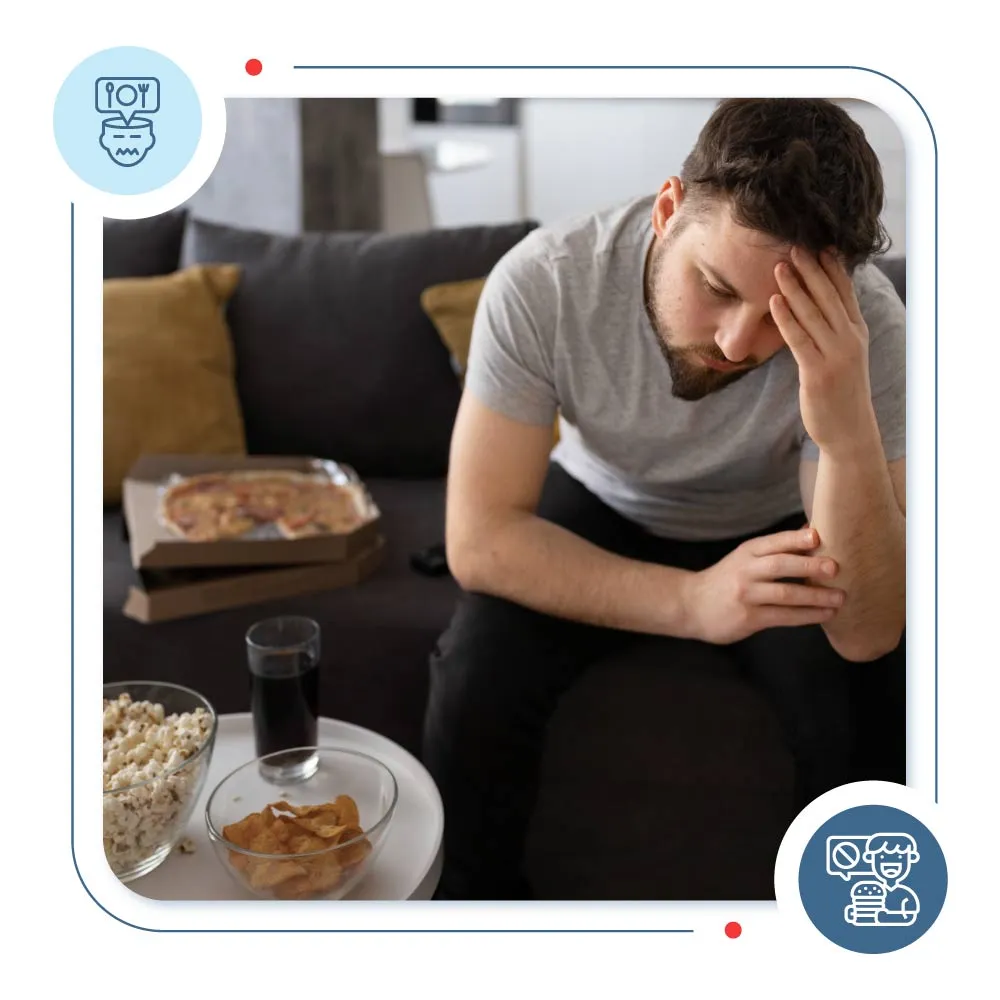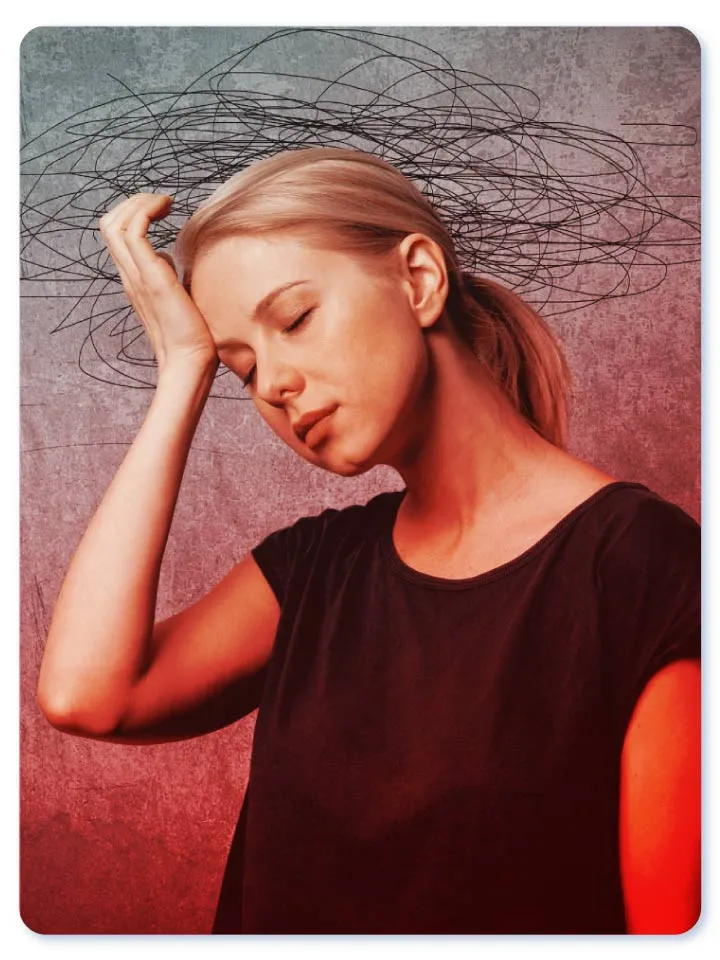Eating Disorders

What are Eating Disorders?
Eating disorders represent severe mental health conditions where unusual eating patterns damage both the physical health and emotional states of affected individuals. Multiple psychological factors, together with biological and societal influences, are responsible for eating disorders. Though eating disorders can affect anyone of any age, rising bodily concerns in the current era of social competition and the pursuit of perfection have raised such problems.
The National Eating Disorder Association declares that the prevalence of eating disorders has doubled from 3.5% to 7.8% in the past decade, showing a continuous worsening of the situation. A statistical report from the National Institute of Health (NIH) reveals a shocking gender predominance of eating disorders, with a female-to-male ratio ranging from 2:1 to 10:1.
Mid Cities Psychiatry provides you with comprehensive eating disorders treatment in Euless. We are your ultimate companion to fight this challenge away and move towards a brighter tomorrow.

Causes of Eating Disorders
While the exact cause of eating disorders has not yet been identified, several risk factors are suggested by researchers that contribute to the problem, such as:
- If you have a family history of eating disorders or other mental health issues
- Having other mental health conditions like anxiety disorder, depression, or obsessive-compulsive disorder makes you prone to eating disorders
- Psychosocial trauma, especially in childhood, such as bullying or abuse
- Societal pressures of unrealistic beauty standards or body image expectations
- Being Type 1 diabetic or having a tendency to develop diabetes can also increase your risk of developing a severe eating disorder



Eating Disorders Symptoms
Eating disorders can be hard to identify based on eating patterns or general physical appearance. Also, transient dietary changes may not always depict an underlying disorder. On top of that, eating disorder symptoms vary according to their types. Nonetheless, you’re likely to experience the following eating disorder effects:
- Excessive or limited food intake
- Resisting certain types of foods
- Sudden drastic weight changes (weight loss or gain)
- Being extremely tired
- Thinning of hair or excessive hair loss
- Fainting or getting dizzy
Eating disorders also bring noticeable behavioral and emotional changes, such as:
- Feeling extremely guilty after eating
- Secretly hiding food or throwing it away
- Need a bathroom break after eating
- Trying to induce vomiting after eating or misusing laxatives
- Engaging in excessive exercise even after eating a little
- Unexplained, frequent mood swings
- Being fearful of the judgments of others
- Avoiding social gatherings

Types of Eating Disorders
Anorexia nervosa
There is an intense fear of weight gain and distorted body image, which forces you to self-starve. The body mass index or BMI of an anorexic person is commonly below the normal average of 18.5 for the adult population. Anorexia can be of 2 types;
- Restricting type: defined by absolute dieting and food restrictions
- Binge-eating/purging type: characterized by episodes of binge eating, which is followed by induced vomiting or laxative misuse.
Bulimia nervosa
Bulimia nervosa is also driven by false body image expectations and concerns. A bulimic person engages in binge eating for a short time secretly, which results in feelings of shame followed by compensatory efforts to avoid weight gain, such as purging or excessive exercise. What makes bulimia different from the anorexia-binge-eating type is the weight of the person. A bulimic person can be of normal weight, slightly underweight, overweight, or even obese, but an anorexic person is always extremely underweight.
Binge-eating disorder
The hallmark of this disorder is the consumption of large amounts of food and a sense of guilt, yet no compensatory efforts are made to rectify the mistake.
Pica
Pica is a serious mental health issue characterized by the compulsive desire to ingest inedible things (chalks, rubbers, dirt, paint, pencil shavings, etc)
Rumination
Rumination manifests as repeated regurgitation of swallowed food, which is then re-chewed and either re-swallowed or spat out.
Avoidant/Restrictive Food Intake Disorder (ARFID)
AFRID characteristically doesn’t result from body image concerns. There is disordered eating secondary to a lack of interest in eating, aversions to certain foods, or extreme picky eating behavior that leads to serious weight loss or nutritional deficiencies.
Treatment of Eating Disorders
Mid Cities Psychiatry offers you all kinds of management strategies for eating disorders. Reach out to us, and let our expert team diagnose your exact type of disorder and provide the best treatment option tailored for you.
- Psychotherapy
- Medication management
- Nutrition counselling
- Inpatient hospital stay


FAQs
01
Who is more likely to get an eating disorder?
Eating disorders can affect anyone of any age, but studies suggest a higher prevalence among females than males, particularly teenage girls. This can stem from unrealistic weight expectations or fear of pubertal changes.
02
Is food OCD a thing?
Food OCD is a misnomer often used for food-related behaviors such as rigid eating routines, extreme fear of food contamination, or strictly resisting certain foods. However, researchers have shown that if you have any eating disorder, you’re statistically more prone to develop OCD (obsessive-compulsive disorder) and vice versa.
03
What are the complications of eating disorders?
Disordered eating initially predisposes you to malnutrition, leading to weakened bones, hair, and muscles and lowered immunity. Untreated cases can end up suffering from life-threatening heart issues.
04
How can I fix disordered eating myself?
If you suspect yourself of having an eating disorder, you should practice mindful eating, avoid dietary restrictions, and manage your stress. Nevertheless, seeking professional support is often deemed necessary for lasting recovery.
Real Stories, Real Recovery





We provide a comprehensive care provision for the most common mental issues people struggle with, such as PTSD, ADHD, OCD, anxiety, depression, sleep disorder, schizophrenia, and numerous other mental health conditions.





